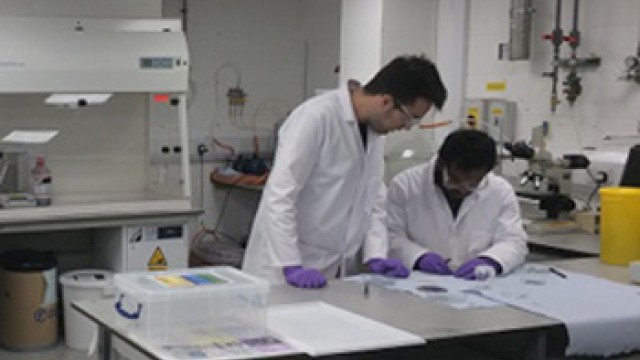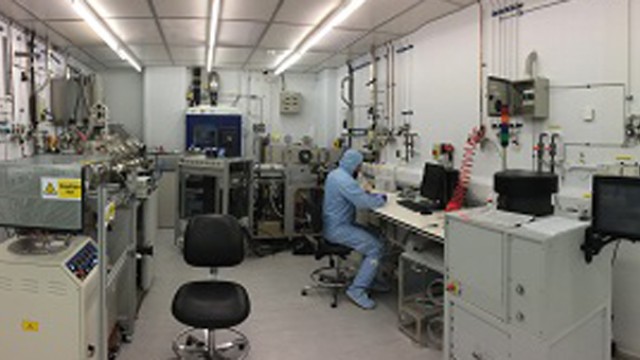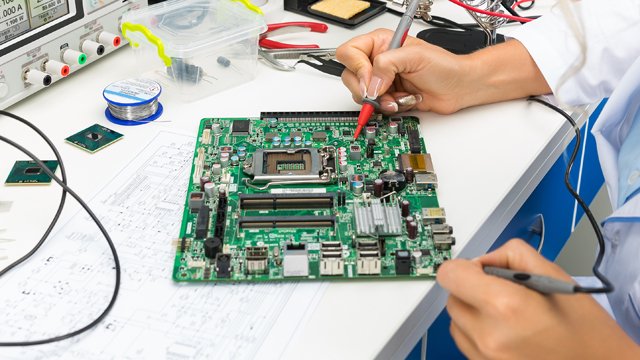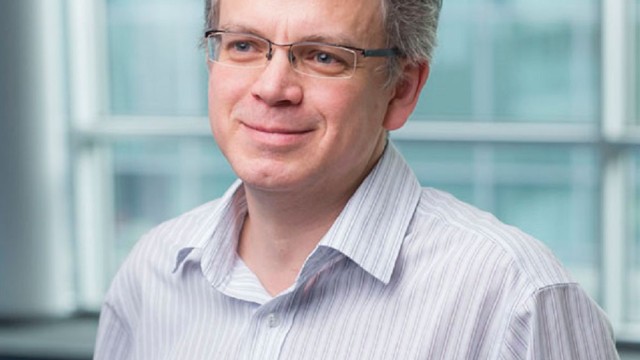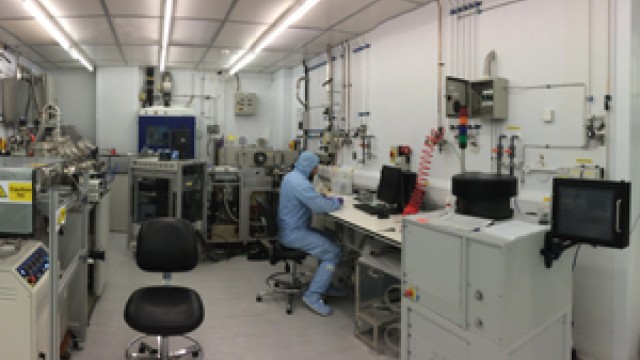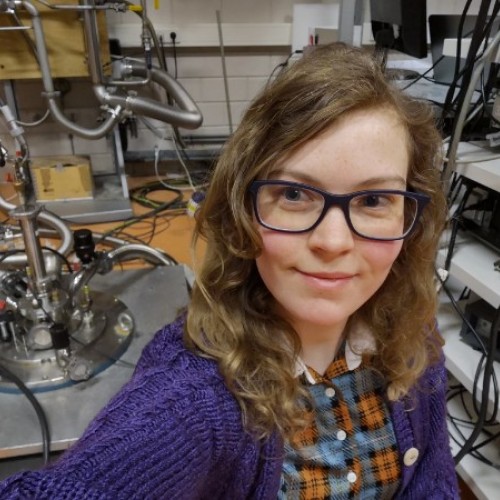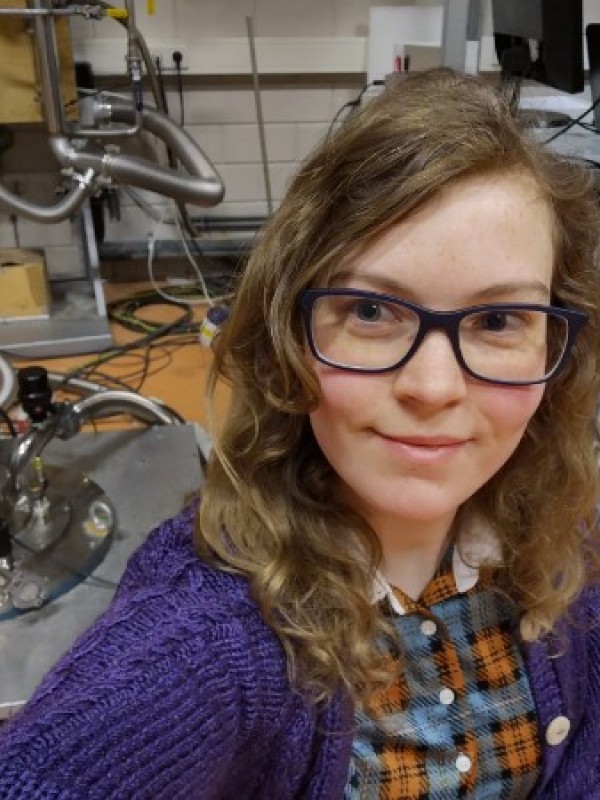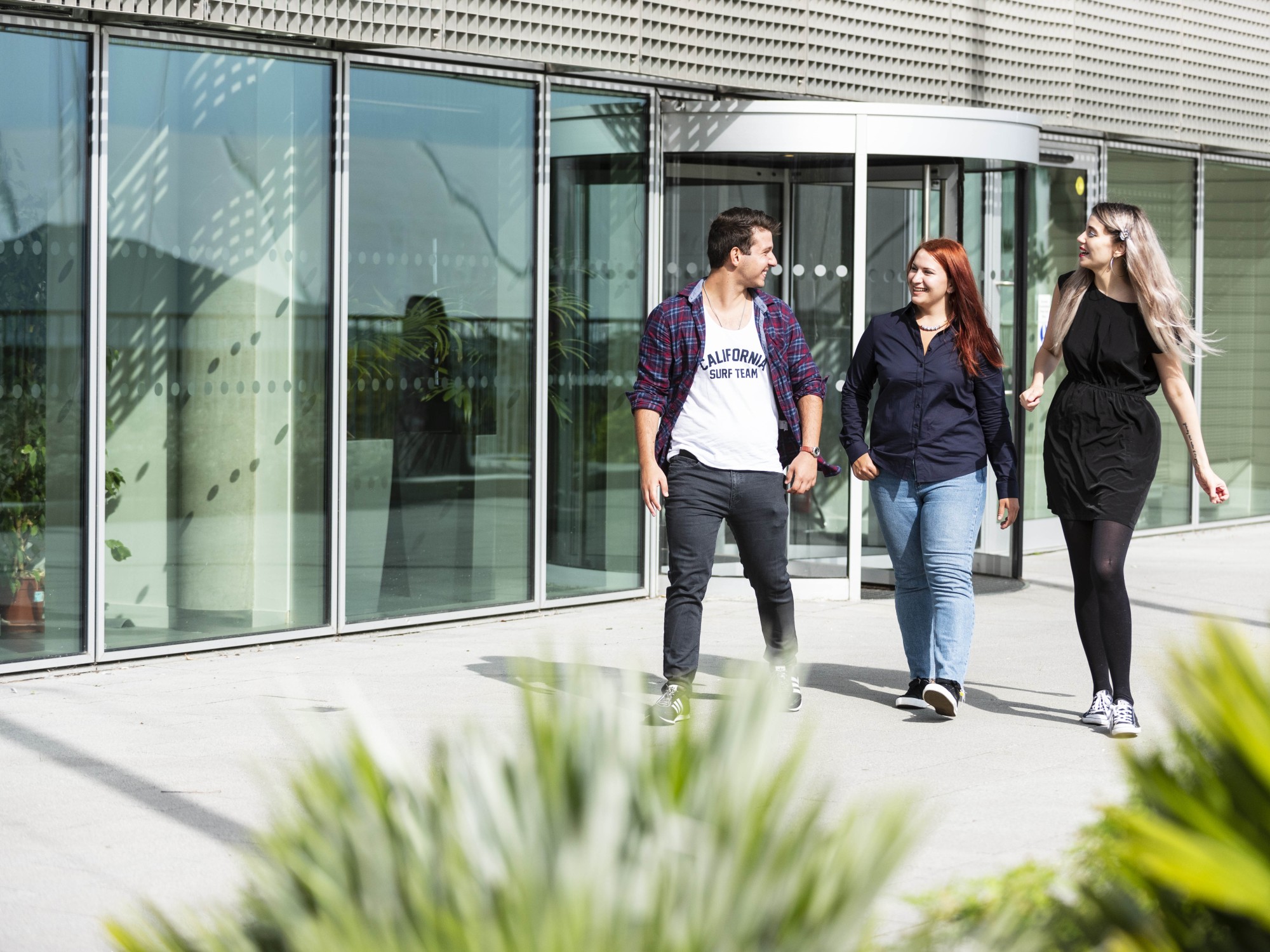
- Advanced Technology Institute
PhD Advanced Technology Institute
The Advanced Technology Institute (ATI) is one of the University’s world-leading research centres. As a PhD student, you’ll work alongside other ATI researchers in areas including quantum information, nanotechnology, energy, microwave engineering and advanced materials.
4,138+ people have created a bespoke digital prospectus
Why choose this
programme?
The ATI houses 160 researchers, including engineers, physicists, materials scientists, biologists and chemists. Approximately half of these researchers are PhD students, allowing you to pursue truly multidisciplinary research.
It’s likely you’ll also have the opportunity to collaborate with scientists around the world, which will enhance your international outlook. As part of the larger Doctoral College community, you’ll receive the training you need to become a fully-fledged researcher and drive the next generation of technology and innovation.
You’ll have access to the ATI’s extensive facilities and equipment – which have benefitted from more than £40 million of investment – to fabricate, characterise, analyse and simulate. This means you can push the frontiers of physics and engineering, while also working closely with local, national and international companies.
Additionally, you’ll be able to join the most appropriate professional institution based on your degree. This is nominally the Institute of Engineering and Technology (IET) and/or the Institute of Physics (IOP) as an associate member, and you’ll be entitled to apply for full membership after three years of postgraduate studies.
Statistics
Top 15 for research power
The University of Surrey ranks 15th in the UK for research power for engineering (REF 2021)
Top 20 for research outputs
The University of Surrey ranks top 20 in the UK for the overall quality of our research outputs (REF 2021)
What you will study
Your research will sit in one of the ATI’s four research groups: Nanoelectronics, Photonics, Ion Beams, and Theory and Computation. These are united by cross-cutting themes, such as science and technology on the nanoscale, technological applications of quantum science and engineering, and conversion of energy.
Your proposal for a new PhD topic will be examined with a holistic view of the field and its technical content, the excellence in the proposed research, its potential to provide new and fundamental insight to technical problems, and the ability of the ATI to provide the best environment to facilitate the research.
You’ll be registered for a maximum four-year period of full-time study. After 12 months, you’ll write a confirmation report, which will be assessed by independent examiners. A detailed evaluation of progress and future research plans will be made every six months to ensure that progress towards completion of the PhD remains satisfactory.
A PhD normally lasts for three-and-a-half years. During this time, you’ll be supported by two academics, who you’ll meet with on a regular basis. Postdoctoral researchers in the group also help with project steering, especially when the PhD work is part of a multinational or industry-focused programme.
The location of your research will depend on the needs of your project. You’ll be allocated office space in the ATI building, typically alongside researchers with related research interests. Depending on the specifics of your project, your time will be spent differently around the facility. Modelling projects are predominantly computer-based, while experimental projects involve work in the Clean Room and an assortment of labs. Like many PhD projects, yours may be collaborative and require travel for meetings with associates and to access specialised facilities.
You’ll submit a written PhD thesis after a minimum three years of full-time study, which will be examined in a viva by a combination of external and internal examiners, selected for their knowledge of the research field. A PhD will be awarded if the content, rigour, originality and relevance of the research are sufficient for publication in peer-reviewed journals.
Assessment
Your final assessment will be based on the presentation of your research in a written thesis, which will be discussed in a viva examination with at least two examiners.
You have the option of preparing your thesis as a monograph (one large volume in chapter form) or in publication format (including chapters written for publication), subject to the approval of your supervisors.
Location
This course is based at Stag Hill campus. Stag Hill is the University's main campus and where the majority of our courses are taught.
Research themes
- Photonics
- Quantum science and technology
- Nanomaterials
- Nanoscience and nanotechnology
- Advanced energy materials
- Flexible and printed electronics
- Sensors and smart environments
- Ion beams
- RF and microwave devices
- Micro- and nanofabrication
- Microscopy and surface science
- Modelling and simulation
- Semiconductor devices
- Renewable energy systems.
Dr Maxim Shkunov is your programme supervisor. See a full list of all our academic staff within the Advanced Technology Institute.
Research support
The professional development of postgraduate researchers is supported by the Doctoral College, which provides training in essential skills through its Researcher Development Programme of workshops, mentoring and coaching. A dedicated postgraduate careers and employability team will help you prepare for a successful career after the completion of your PhD.
Facilities
Nanoelectronics Centre
This centre has laboratories for plasma, energy and printed electronics all supported by a dedicated Clean Room.
Ion Beam Centre
The Nanofabrication Laboratory, which sits within the Ion Beam Centre, contains two electron microscopes and a dual-beam electron/ion microscope.
Hydrostatic Pressure Laboratory
This laboratory is used to vary the lattice constant of crystals in a controlled manner, mimicking the effect of changing composition.
Laser laboratories
These laboratories include pulsed lasers for material deposition, patterning and characterisation of materials.
Multiphysics characterisation
For thermal, electromagnetic and device characterisation for microwave transistors.
Extensive computational facilities
These facilities are used for electronic, quantum and photonic device simulations.
UK qualifications
Applicants are expected to hold a first or upper second-class (2:1) UK degree in a relevant discipline (or equivalent overseas qualification), or a lower-second (2:2) UK degree plus a good UK masters degree - distinction normally required (or equivalent overseas qualification).
English language requirements
IELTS Academic: 6.5 or above (or equivalent) with 6.0 in each individual category.
These are the English language qualifications and levels that we can accept.
If you do not currently meet the level required for your programme, we offer intensive pre-sessional English language courses, designed to take you to the level of English ability and skill required for your studies here.
Selection process
Selection is based on applicants:
- Meeting the expected entry requirements and providing all relevant documents including a satisfactory research proposal
- Being shortlisted through the application screening process
- Completing a successful interview
- Providing suitable references.
Fees per year
Explore UKCISA's website for more information if you are unsure whether you are a UK or overseas student. View the list of fees for all postgraduate research courses.
* Please note: any start date other than September will attract a pro-rata fee for that year of entry (75 per cent for January, 50 per cent for April and 25 per cent for July).
April 2026 - Full-time
- UK
- £5,006
- Overseas
- £27,200
April 2026 - Part-time
- UK
- £2,503
- Overseas
- £13,600
July 2026 - Full-time
- UK
- £5,006
- Overseas
- £27,200
July 2026 - Part-time
- UK
- £2,503
- Overseas
- £13,600
October 2026 - Full-time
- UK
- To be confirmed
- Overseas
- £28,300
October 2026 - Part-time
- UK
- To be confirmed
- Overseas
- £14,200
January 2027 - Full-time
- UK
- To be confirmed
- Overseas
- £28,300
January 2027 - Part-time
- UK
- To be confirmed
- Overseas
- £14,200
- Annual fees will increase by 4% for each year of study, rounded up to the nearest £100 (subject to legal requirements).
Additional costs
There are additional costs that you can expect to incur when studying at Surrey.
Funding
A Postgraduate Doctoral Loan can help with course fees and living costs while you study a postgraduate doctoral course.
Studentships
Browse our frequently updated list of funded studentships open for applications.
Application process
Applicants are advised to contact potential supervisors before submitting an application via the website. Please refer to section two of our application guidance.
After registration
Students are initially registered for a PhD with probationary status and, subject to satisfactory progress, subsequently confirmed as having PhD status.
Apply online
To apply online first select the course you'd like to apply for then log in.
Select your course
Choose the course option you wish to apply for.
Sign in
Create an account and sign into our application portal.
The closing date is the last day this month is available for applications, but if you are applying through a studentship you must follow the deadline on the advert to be eligible.
ApplyThe closing date is the last day this month is available for applications, but if you are applying through a studentship you must follow the deadline on the advert to be eligible.
ApplyThe closing date is the last day this month is available for applications, but if you are applying through a studentship you must follow the deadline on the advert to be eligible.
ApplyThe closing date is the last day this month is available for applications, but if you are applying through a studentship you must follow the deadline on the advert to be eligible.
ApplyThe closing date is the last day this month is available for applications, but if you are applying through a studentship you must follow the deadline on the advert to be eligible.
ApplyThe closing date is the last day this month is available for applications, but if you are applying through a studentship you must follow the deadline on the advert to be eligible.
ApplyThe closing date is the last day this month is available for applications, but if you are applying through a studentship you must follow the deadline on the advert to be eligible.
ApplyThe closing date is the last day this month is available for applications, but if you are applying through a studentship you must follow the deadline on the advert to be eligible.
ApplyAbout the University of Surrey
Need more information?
Contact our Admissions team or talk to a current University of Surrey student online.
Code of practice for research degrees
Surrey’s postgraduate research code of practice sets out the University's policy and procedural framework relating to research degrees. The code defines a set of standard procedures and specific responsibilities covering the academic supervision, administration and assessment of research degrees for all faculties within the University.
Download the code of practice for postgraduate research admissions (PDF).
Terms and conditions
When you accept an offer to study at the University of Surrey, you are agreeing to follow our policies and procedures, student regulations, and terms and conditions.
We provide these terms and conditions at the offer stage and are shown again at registration. You will be asked to accept these terms and conditions when you accept the offer made to you.
View our generic registration terms and conditions (PDF) for the 2025/26 academic year, as a guide on what to expect.
Disclaimer
This online prospectus has been published in advance of the academic year to which it applies.
Whilst we have done everything possible to ensure this information is accurate, some changes may happen between publishing and the start of the course.
It is important to check this website for any updates before you apply for a course with us. Read our full disclaimer.
